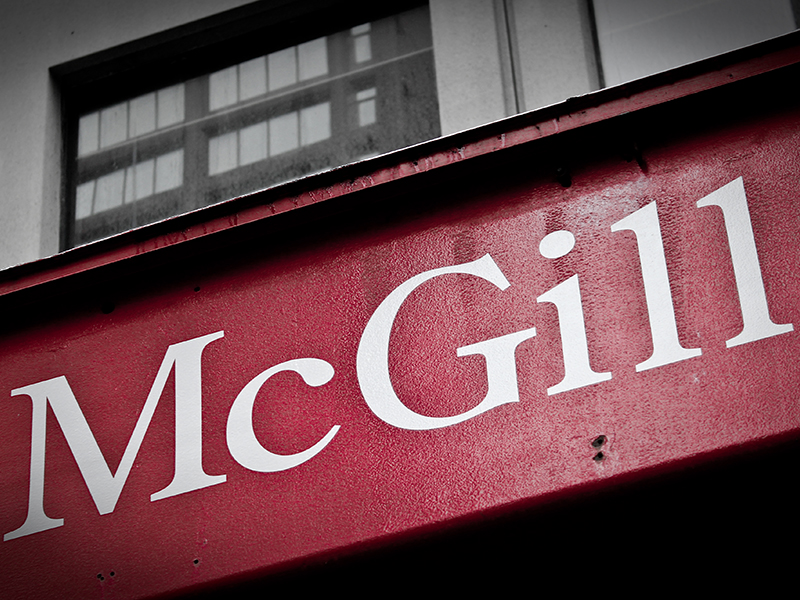Following an internal investigation, McGill University has concluded that anti-Semitism was not a factor when students at the Student Society of McGill University’s (SSMU) general assembly in October prevented the re-election of three pro-Israel students who dared to oppose the BDS movement.
Yet McGill’s report made three serious mistakes: it ignored how modern anti-Semitism hides behind anti-Zionism; it implied that whereas universities put the burden of proof on racists, sexists and homophobes rather than their victims, the burden of proof regarding anti-Semitism falls on Jews; and, most outrageously, while concluding there was no anti-Semitism at the assembly, the report proved that there was anti-Semitism before and afterwards – yet barely objected to it.
The investigator, Professor Spencer Boudreau, approached his task calmly and honourably. He concluded that because BDS and Israel were issues in the vote, the outcome reflected political differences, not religious bigotry. On one hand, his report tries to distinguish between unacceptable Jew-hatred and hostility toward the Jewish state, which Israel’s supporters must tolerate, so our hostility toward Israel’s enemies will be tolerated.
Unfortunately, Boudreau misses the obsessive way that BDS supporters target Israel. Boudreau should have considered Natan Sharansky’s 3D test of anti-Semitism, which illustrates that when Israel is demonized disproportionately, judged by double standards and delegitimized, the assaults go from the realm of the normal to the pathological – from political debates, to Jew-hatred.
Similarly, reading the internationally recognized, Organization for Security and Co-operation in Europe-approved definition of anti-Semitism, which was drafted by the International Holocaust Remembrance Alliance, would have provided context and clarity. That definition explains that modern anti-Semitism includes: “The targeting of the State of Israel, conceived as a Jewish collectivity,” “Accusing Jewish citizens of being more loyal to Israel” and “Holding Jews collectively responsible for actions of the State of Israel.”
READ: MCGILL WHITEWASHES ANTI-SEMITISM ON CAMPUS
While ignoring modern anti-Semitism’s masquerade, the report also ignored campus norms about how bigotry is dealt with. Alleged micro-aggressions are taken seriously and victims’ perceptions predominate on campus. Yet Noah Lew’s feelings as a Jew experiencing unwarranted hatred were not treated as gingerly.
Beyond the subtleties is the fact that the report “buried the lede,” as reporters say. Indeed, in a report that found no evidence of anti-Semitism at McGill, Boudreau wrote: “I cannot stress enough that social media generally proved to be a most negative and at times disturbing platform.” He noted that some students posted “ad hominem” and “abusive attacks” and that a post made by the pro-BDS group Democratize SSMU contained “anti-Jewish tropes.”
Those words suggest that anti-Semitism did occur at McGill.
Saying it didn’t occur at the SSMU but occurred elsewhere is like the pest controller saying, “Don’t worry, there are no pests in the attic,” while leaving them in the basement.
Furthermore, reporting that Democratize SSMU’s post was deleted and apologies were made implies that no harm was done, even though the report admits that “harm had been done” – and recognizes that this lynch mob-like atmosphere (my characterization) may have made Lew extra sensitive to such insults.
As a McGill professor and McGill patriot, I wish that this report convinced me that there was no anti-Semitism at the university. But the report found rats in the basement. Someone within the McGill community must address this problem honestly, thoughtfully, constructively and aggressively. I don’t want any donors cutting funds to McGill, or any students refusing to enrol.
But I also don’t want administrators and faculty using this whitewash with dark stripes to dodge their moral responsibility to make sure that every member of the McGill community feels respected and accepted, even if they dare to be pro-Israel, or even Zionist.
